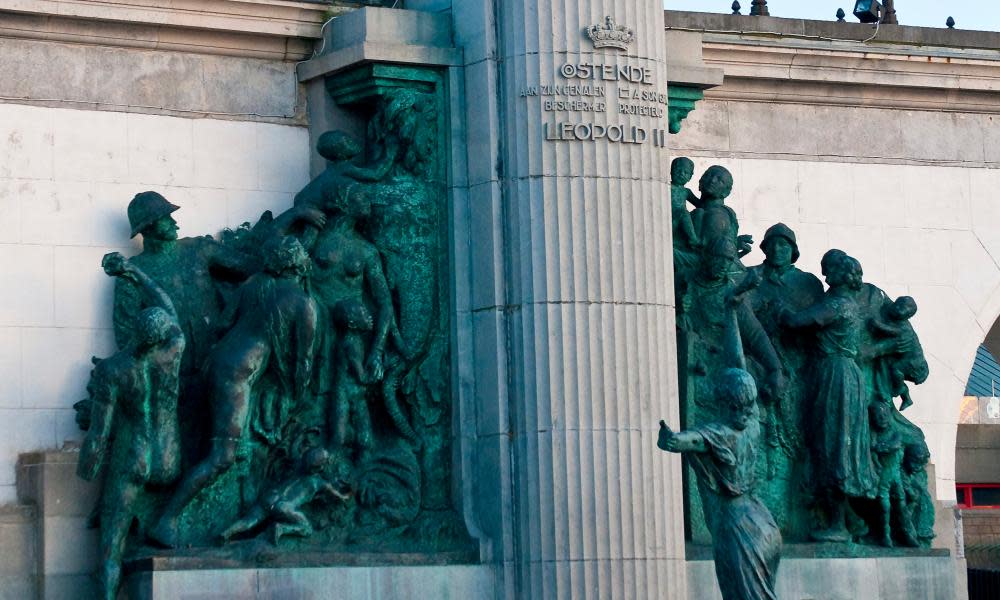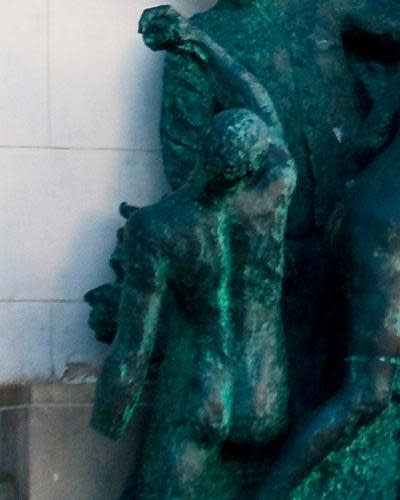Reappearance of statue's missing hand reignites colonial row

A mysterious act of vandalism and theft that has perplexed Belgian detectives for 15 years has come a little closer to being resolved – and helped ignite a renewed and growing debate over the country’s bloody colonial history.
In the dead of an April night in 2004, a bronze statue overlooking Ostend’s seafront of a Congolese man gazing up at a horse-mounted King Leopold II was attacked with a hacksaw. The left hand of the slave was removed, in a reference to a common punishment meted out to Congo’s population during the Belgian monarch’s reign in the late 19th century.
The anonymous activist vandals, who called themselves De Stoeten Ostendenoare (“the bold Ostenders”), subsequently offered to return the hand, but only if the royal family and the Belgian state apologised for their colonial history.
The slave’s bronze hand has not been seen since that day, despite a police investigation and even the arrest of a journalist who was wrongly suspected of involvement in the politically motivated crime.

But in the wake of an “intermediary” report by a UN working group that visited last month, which concluded that the country’s institutions remain racist and the state needs to apologise for the sins of its past, De Stoeten Ostendenoare have emerged again from the shadows.
During a debate in Ghent, where Belgium’s culture minister, Sven Gatz, was discussing the country’s policies towards modern-day Congo, a self-styled spokesman for the group, Piet Wittevrongel, 71, approached the stage holding the bronze hand, a development that had been trailed in the media.
“We are willing to give back the hand but then we want a guarantee that there will be apologies from the royal house for the misdeeds in the former colony,” Wittevrongel said. “That it is admitted that our colonial past was a mess. And that we hand over the three teeth of the murdered prime minister Patrice Lumumba, which are kept in the Palais de Justice in Brussels, to his relatives. It is the only thing left of the man. Then his family can finally officially bury him.”
The Congo Free State was run by Leopold as his private domain from 1885 to 1908, looting the country of its rich resources until he bequeathed it to the Belgian state under pressure from the international community. Estimates of deaths in that period range from 10 million to 15 million Africans.
The newly named Belgian Congo, which includes the whole of the present-day Democratic Republic of the Congo, finally gained independence from Belgium in 1960.
In 2002, Belgium formally apologised for its role overseeing the assassination of Lumumba, the Congolese independence leader and new republic’s first prime minister.
The Belgian foreign minister, Louis Michel, father of the country’s prime minister Charles Michel, read the apology during a debate in parliament following an official report into Lumumba’s death.
Gatz was unable to promise such an apology on Thursday evening, and Wittevrongel returned home with the hand, leaving with a warning. “If these excuses do not come,” he said, “De Stoeten Ostendenoare will take his hand to the grave. Maybe we’ll stick a raised middle finger to it.”
The Belgian prime minister, who described the UN group’s report as “very strange”, has promised to respond in full when it files its conclusions in September.

 Yahoo News
Yahoo News 
